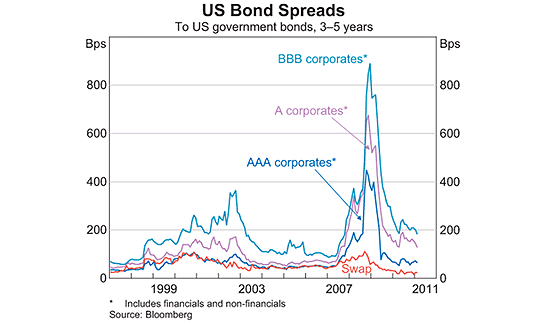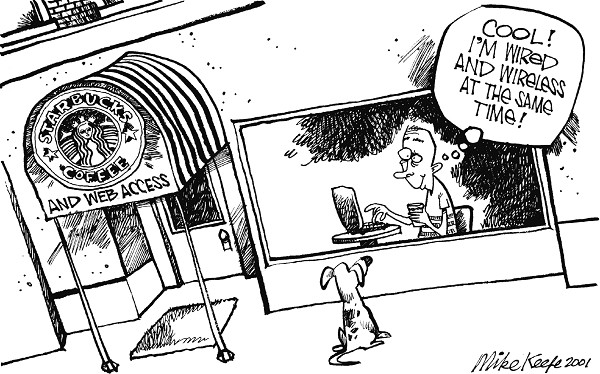
Today's Top 10 is a guest post from Craig Simpson, senior analyst for interest.co.nz.
As always, we welcome your additions in the comments below or via email to david.chaston@interest.co.nz. And if you're interested in contributing the occasional Top 10 yourself, contact gareth.vaughan@interest.co.nz.
See all previous Top 10s here.

1. Michael Lewis’ new book Flash Boys is creating intense and at times emotional debate on the merits of high frequency trading and the ethics of certain parts of the market having access to information not available to others.
Not everyone thinks Lewis is right, the folk at socializingfinance point out where they think he is wrong.
This book has the potential to spark a cultural uprising.
More than five years on from the Lehman collapse, Lewis has lit the touch paper on the mother of all debates about Wall Street and global finance (Liam Halligan Spectator).
Some recent reviews are below.
When the stories of our times are told, there will be no more seminal documents than the books of Michael Lewis (Guardian)
Who knew high-frequency trading was such a sexy subject? (Bloomberg Business Week)
Flash Boys is remarkable for its moral outrage as it reveals how high-frequency traders have hoodwinked both investors and the public. He is that rare beast: an insider who writes lucid, jargon-free prose and who never loses track of his ultimate responsibility to the story (Daily Telegraph)
Macau has long had a reputation for facilitating the laundering of money from China. In March, a Hong Kong court jailed Carson Yeung, the owner of Birmingham City football club in the UK, for money laundering related to casinos in Macau.
Punters from the Chinese mainland, where gambling is illegal, have turned Macau – a former Portuguese colony and now a special administrative region of China – into the worlds biggest gambling centre, with revenues seven times that of Las Vegas. Many of the Chinese visitors to Macau use UnionPay cards to circumvent rules that set a daily limit of Rmb20,000 (US$3,210) on the amount people can bring out of the mainland.
One ruse has been to buy expensive watches on credit in Macau’s many jewellery shops and then return the item a few minutes later for a cash refund, minus a commission for the retailer. The widespread practice is not illegal.
3. Social media site Linkedin used to bust NAB trader and Australian Statistics Bureau analyst
National Australia Bank associate director Lukas Kamay, was making sizeable bets on the Australian dollar, minutes and sometimes seconds before the announcement of housing and building data. To get the heads up Kamay paid a mate at the ABS $60,000 for data before it was released.
Not surprisingly NAB have moved to distance themselves from their staff member saying Kamay was trading on his own account and no NAB money, customer money or NAB systems were used.
4. Barclays move to reduce their investment banking team head count Frances Copola writing for Forbes ponders whether investment banking is dead.
Copola concedes that investment banking per se is not dead and they are a necessary evil. More importantly for many investment banks in a post Basel III environment capital-intensive activities simply are no longer affordable.
Many of the traditional power house investment banks are having to reallocate capital to get the best bang for the shareholder buck and unfortunately that is not longer from specialist divisions.
Looking after shareholders and customer service are becoming the number one priority for many investment banks, as it should have been from the start I am sure you will agree.
5. Junk bonds continue to attract investors who are once again chase yield
When I see reports like this one (and a recent FT.com piece) stating young hungry investors are chasing junk bonds I can’t help but shake my head in amazement. Maybe I am a little too conservative but I have doubts that CCC bonds are offering an appropriate margin above “risk free” investments to justify the investment.
At the height of the financial crisis debt bonds with better credit quality than that talked about in the article were trading somewhere around 800 basis points (8%) over a government bond.
CCC rated bonds are known as junk bonds for a reason. They are generally those company’s which are vulnerable and rely on lady luck to see them through.

For an explanation of credit ratings, see this link.
6. Cream of Wheat and “my grandpa’s Metamucil." That is what some taste tasters have called Soylent, a creation which evolved from the desire to reduce the monthly food bill and a failed technology start up.
Rob Rhinehart, a twenty-five year old electrical engineering student at Georgia Tech, began to think of food as an inefficient way of getting what he needed to survive.
He took a break from experimenting with software and studied textbooks on nutritional biochemistry and the Web sites of the F.D.A., the U.S.D.A., and the Institute of Medicine. Eventually, Rhinehart compiled a list of thirty-five nutrients required for survival. Then, instead of heading to the grocery store, he ordered them off the Internet—mostly in powder or pill form—and poured everything into a blender, with some water. The result, a slurry of chemicals, looked like gooey lemonade.
Rhinehart called his potion Soylent, which, for most people, evokes the 1973 science-fiction film “Soylent Green,” starring Charlton Heston. The movie is set in a dystopian future where, because of overpopulation and pollution, people live on mysterious wafers called Soylent Green.
7. Thoroughbred horses and humans may be running as fast as they possibly can
From 1949 to 2013 the Kentucky Derby winning time trend line is completely flat indicating that thoroughbred horses are running at their maximum. Translating this through to humans, the same research indicates that Usain Bolt may also be close to his limits.
Mark Denny, who studies biomechanics at Stanford University, wrote a 2008 paper that asked, “Are there absolute limits to the speed at which animals can run?”
He looked at the statistics of the fastest times each year for the Triple Crown horse races (which include the Preakness Stakes and Belmont Stakes in addition to the Kentucky Derby), three premier greyhound races in England, and elite men’s and women’s athletics at distances of 100 meters to the marathon.
The data reflected remarkable achievements by the fastest horses, dogs and people. Denny fit the data with a statistical model, and then used extreme value theory (since the data was about the best in each sport) to calculate a maximum speed limit. Some race times, like the Kentucky Derby’s, have plateaued, while others are still improving, like the men’s 100-meter race. This approach suggests that the fastest time possible for a human in a 100-meter race is 9.48 seconds. Usain Bolt's world record time is only 0.10 seconds from the limit
8. The franchise value of Man Utd, the New York Yankees and Dallas Cowboys is dwarfed by....... the UFC.
Bizarre as it may seem but for a sport as inherently violent and controversial as mixed martial arts (MMA) could attract such worldwide appeal.
For the uninitiated MMA combines elements of kickboxing, jiu-jitsu and wrestling among other combat sports.
The Ultimate Fighting Championship (UFC) franchise brand is worth over US$4 billion and is bigger than some of the more high profile sporting franchises like the mighty Manchester United Football Club.
According to the NZ Herald article, New Zealand is one of the largest consumers of mixed martial arts globally, with Sky TV holding an effective monopoly on both local and domestic content. Currently 4 New Zealanders are involved in the UFC.
9. Would you use Starbucks as your primary office?
A Singapore based entrepreneur gives us 5 reasons by Starbucks is the only office you need and lists some of the benefits as being fast wi-fi, great seating, great green teas and a very positive energetic atmosphere.
I note he did not mention they have great coffee, because frankly he would be lying, and yes I am a coffee snob.
Some of the so-called benefits you may not be able to argue with but I would have thought the chances of corporate espionage and unsecure wi-fi would far outweigh these.
I don’t mind having the odd meeting in the corner of a quiet café but for more important meetings I am old school and prefer the privacy of an office or boardroom.

10. Clarke & Dawe
On the difficulty of selling the Aussie Budget.
8 Comments
re 7. Absolute limits? That is not a popular opinion on this site! According to economic theory when the horses can't run any faster they will substitute legs for wings or something.
In philosopical terms you have made a category mistake.
#1 There is absolutely no advantage to New Zealanders speculative trading in our currency etc. A single tax, say 1.00%, on such internation transactions would stop it dead, and not unduly affect transactions for trade.
A few would be outraged, but only because their pointless activity would be stopped.
You are talking about a Tobin Tax and it would not have to be anywhere 1% to be effective. The EU Parliment have just voted to impliment one at 0.05%, which seems a bit low to me.
http://www.telegraph.co.uk/finance/economics/8368563/EU-Parliament-appr…
Even at this level it is expected to generate 200 billion Euro per year. I must admit I find this figure stagering and wonder if this is a reflection of just how much money is flying arround in as described in Flash Boys. These activities add absolutely nothing to the good of the wider comunity and the hudge profits generated are taking income away from the beneficial sectors of the ecconomy (the money doesn't materialise out of thin air) and so they have no moral justification. All measures to stamp this out seems a good thing to me.
Agree Chris - M. -- but also it is hard to know. A very low level might indeed be quite effective, and if so the vast majority of activity disappears, leaving only the essential traffic.
And as the traffic is vastly reduced, then there may not be a significant tax take from it.
But in my view the objective is not to gain revenue, but to eliminate this distorting activity.
Incorrect KH - research the value of market liquidity and try to exist without it, unless of course you prefer excessive volatility in your currency and associated costs
#1 What I find interesting is the amount of comment that has arisen from people who have obviously not read it, thus confirming Lewis' contention that hardly anybody understands what is happening in the world of HFT!
#6 Spoiler alert!.............Don't forget that SG was made from recycled humans! I guess that would save on P&P for the chemicals?
Here is something a bit in the same theme as #4 for all those with nice directorship sinecures.
http://io9.com/venture-capital-firm-appoints-machine-intelligence-as-b-…
We welcome your comments below. If you are not already registered, please register to comment
Remember we welcome robust, respectful and insightful debate. We don't welcome abusive or defamatory comments and will de-register those repeatedly making such comments. Our current comment policy is here.